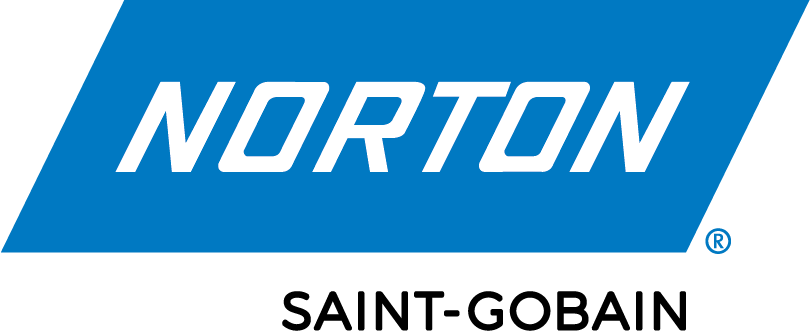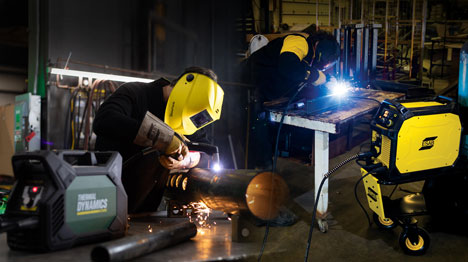Abrasive products are generally categorized into two main groups: bonded abrasives and coated abrasives. However, there’s a third category in the abrasives market that serves a specialized function of preparing and applying the final surface finish. At Norton | Saint-Gobain, this category is known as ‘non-woven’ abrasives. For decades, Norton has been bringing a variety of top-performing non-woven products to market. And yet, these products remain a somewhat hidden treasure waiting to be discovered. Let’s change that.
What are non-woven abrasives?
Non-woven products consist of a web of nylon fibers, which are bonded together and saturated with abrasive grains. This produces a cushioned, three-dimensional material that is pliable, flexible and very long-lasting. The ‘non-woven’ name describes how the bonding agent creates the web as opposed to weaving the strands together. Once the web gets formed, the fibers are treated with an abrasive grain, which provides the grinding power of the web. The uniform dispersion of abrasive throughout the web provides a continuous supply of new grain as the old grain and fibers wear away during use. Also, because the abrasives adhere to the non-woven web, the nylon and abrasives are pliable. The flexibility of the nylon allows them to get into crevices and compensate for contoured or uneven surfaces. A benefit of this product is that the entire surface of a workpiece is reached.
How is a non-woven abrasive used?
Non-woven products are typically designed for use where minimal stock removal is required. Thus, they begin where other abrasive products leave off. The relatively non-aggressive nature of nylon and grit inherent in the material makes it ideal as a surface preparation or finishing tool. While 60 to 80 grits are considered intermediate sizes in other products, they are considered coarse for non-woven items. The abrasive sits on the pliable backing (the web) so you can use these pads and discs as a finishing touch in preparing a workpiece without damaging the surface of the piece. You can also use them for polishing workpieces before finishing. Non-woven products are particularly well suited for deburring, stripping, light weld removal, reducing the roughness of a surface, buffing-up or cleaning. They work on all materials, including carbon, Inconel, copper, aluminum, stainless steel, titanium, and even wood. The products are used on almost all equipment including off-hand inline grinders, RAG to machines (such as cylindrical, centerless, surface grinders), floor-stand grinders, and importantly, robotic applications.
What can non-woven products do for you?
The Norton portfolio of non-woven products reduce finishing steps and are versatile and convenient. With their open mesh construction, they are waterproof, washable, resilient, conformable, non-loading, non-conductive, non-metallic and non-rusting. Non-woven wheels can be easily pre-formed to conform to special-shaped work pieces. Used wet or dry, Norton non-woven products offer you a number of advantages:
• Controlled cut (with little or no stock removal)
• Increased productivity with reduced cycle time
• Consistent, uniform finish – even on contoured surfaces
• Ability to automate operations
• Minimized smearing
• Easy to use, reducing operator training and increasing operator safety
These non-woven advantages give you an excellent alternative to bristle brushes, set-up wheels, greaseless compounds and steel wool.
For more information, check out Norton's other non-woven articles, and talk to your Norton rep about using non-woven abrasives to meet your business needs.
This article was previously featured on Norton's Resources page.
Browse non-woven abrasives from Norton on mscdirect.






